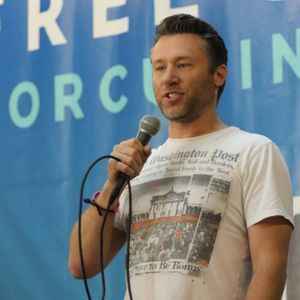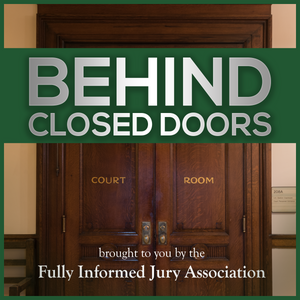Mission
FIJA empowers jurors to uphold individual rights and liberty by instilling in them a rich understanding of their protective role, including jurors’ right to refuse to enforce unjust law.
Programs
FIJA advances its mission through a variety of programs including one-time events and ongoing outreach activities. Learn more about FIJA's programs below.
15 Minutes with FIJA
Join us for this roughly weekly podcast (formerly delivered in the form of live Zoom sessions) to catch up on the major jury-related news of the week. This podcast is hosted on Fully Informed, our free Substack newsletter. You can have it automatically delivered to you as soon as each episode is published by subscribing to Fully Informed. If you have any comments, or especially questions, regarding the content of a particular episode, we invite you to post them on the corresponding Substack post and we'll do our best to answer them.
Click here to subscribe to Fully Informed.
FIJA Speakers Bureau
FIJA has pre-screened a number of speakers on jury nullification and related topics who are available for in person and online engagements. You can browse our online directory of currently available speakers, their presentation topics, and contact information.
Click here to find and book a speaker for your event.
Behind Closed Doors Podcast
FIJA's unique podcast is the only one we know of that focuses specifically on the American jury system. In this podcast we discuss the history and intended protective role of our jury system, how it interacts with and is affected by other parts of the criminal legal system, and how our critical right to trial by jury has been driven to the brink of extinction.
Click here to listen to the latest episodes of Behind Closed Doors.
Research

Jury Health Project
Since the founding of the United States, governments at all levels have chipped away at many of our rights that the founders intended to be protected by the Constitution, including the Bill of Rights. In other cases, where these founding documents did not guarantee and uphold liberty and justice for all, wider legal recognition of these rights has often been established through Constitutional amendments, legislation, and court precedent. The landscape for jury rights has changed significantly since the founding of the United States. Where do our jury rights stand today? It is time for a health check.
To provide exactly that, FIJA has created the Jury Health Project. We will be looking at numerous aspects indicative of the health or lack thereof of jury systems nationwide. We will evaluate the rules as officially spelled out, as well as their functionality in practice, of juries at the federal level, in all fifty states, and in Washington, D.C. with respect to each of these jury health indicators.Click here for resources developed as part of our Jury Health Project.
Jury Rights Day
For nearly 30 years, Jury Rights Day has been FIJA's signature day of education. Each year FIJA hosts Jury Rights Day on September 5 in commemoration of the famous trial of William Penn in 1670 which laid the foundation for the right that jurors have still today to conscientiously acquit someone by jury nullification. Friends of FIJA nationwide are called to spend an hour or more on or near Jury Rights Day creating more fully informed jurors in their communities.
Click here to join us in celebrating Jury Rights Day on 5 September!
-
Estimated Convictions Obtained by Plea Bargain
97%
-
Extra Punishment for Refusing a Plea Deal
64%
-
Rank of U.S. in Incarceration
1
-
Years FIJA Has Fought for Jury Rights
36






